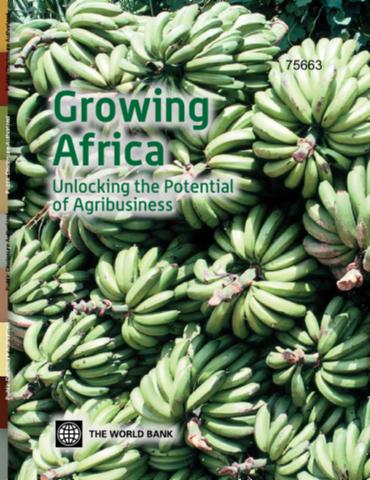The World Bank is a vital source of financial and technical assistance to developing countries around the world. We are not a bank in the ordinary sense but a unique partnership to reduce poverty and support development. The World Bank Group has two ambitious goals: End extreme poverty within a generation and boost shared prosperity.
- To end extreme poverty, the Bank's goal is to decrease the percentage of people living on less than $1.25 a day to no more than 3% by 2030.
- To promote shared prosperity, the goal is to promote income growth of the bottom 40% of the population in each country.
The World Bank Group comprises five institutions managed by their member countries.
The World Bank Group and Land: Working to protect the rights of existing land users and to help secure benefits for smallholder farmers
The World Bank (IBRD and IDA) interacts primarily with governments to increase agricultural productivity, strengthen land tenure policies and improve land governance. More than 90% of the World Bank’s agriculture portfolio focuses on the productivity and access to markets by small holder farmers. Ten percent of our projects focus on the governance of land tenure.
Similarly, investments by the International Finance Corporation (IFC), the World Bank Group’s private sector arm, including those in larger scale enterprises, overwhelmingly support smallholder farmers through improved access to finance, inputs and markets, and as direct suppliers. IFC invests in environmentally and socially sustainable private enterprises in all parts of the value chain (inputs such as irrigation and fertilizers, primary production, processing, transport and storage, traders, and risk management facilities including weather/crop insurance, warehouse financing, etc
For more information, visit the World Bank Group and land and food security (https://www.worldbank.org/en/topic/agriculture/brief/land-and-food-security1
Resources
Displaying 2666 - 2670 of 4907Growing Africa
This report highlights the great potential of the agribusiness sector in Africa by drawing on experience in Africa as well as other regions. The evidence demonstrates that good policies, a conducive business environment, and strategic support from governments can help agribusiness reach its potential. Africa is now at a crossroads, from which it can take concrete steps to realize its potential or continue to lose competitiveness, missing a major opportunity for increased growth, employment, and food security. The report pursues several lines of analysis.
Infrastructure Regulatory Review for Government of Vanuatu
The Government of Vanuatu requested
assistance from the World Bank to strengthen utility
regulation. The government wants a regulatory system which
will ensure that water, electricity and telecommunications
services are provided efficiently, to a good quality
standard, at reasonable prices. The public private
infrastructure advisory facility provided funding for
Castalia and network strategies to carry out an initial
India - Jharkhand : Public Financial Management and Accountability Study
Jharkhand, India's youngest and
28th state came into existence in November 2000 pursuant to
the reorganization of the erstwhile State of Bihar by the
Bihar State Reorganization Act, 2000. More than 77 percent
of the population of the state resides in rural areas and
depends on agriculture for sustenance. Jharkhand is one of
the richest states in the country in terms of mineral
resources. Close to half of the gross domestic product
Pakistan Cyclone and Floods 2007 : Preliminary Damage and Needs Assessment, Balochistan and Sindh
The exercise was to conduct a
preliminary assessment of the damage caused by the cyclone
and floods, in close coordination with the government,
development partners, civil society, and other stakeholders
active in the affected area,. The damage and needs
assessment (DNA) also estimates the related economic
implications and indirect losses incurred due to wide scale
flood damages in Sindh and Balochistan, and the associated
Fiscal and Debt Management in Andhra Pradesh (India) : An Update on the Reform Program
The main objective of this fiscal note
is to assist the Government of Andhra Pradesh (GoAP) in
meeting the challenges mentioned above. To this end, it
provides input into the state's rolling medium-term
fiscal framework exercise. The new Fiscal Responsibility and
Budget Management (FRBM) act requires that the government
will lay out in each financial year a medium-term fiscal
policy statement (together with three-year rolling targets







